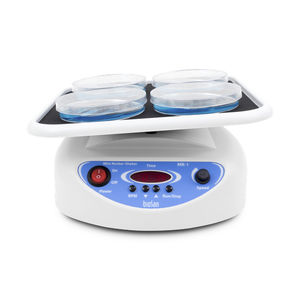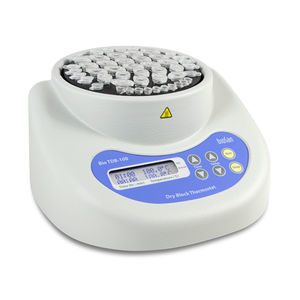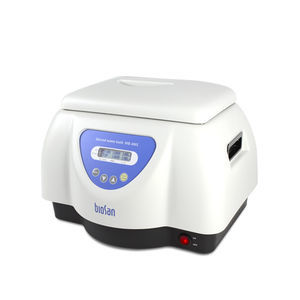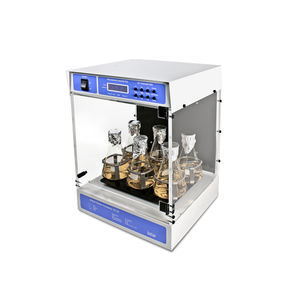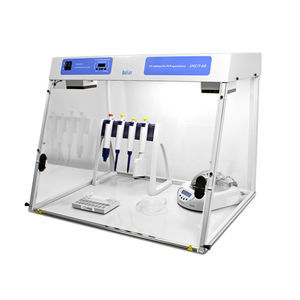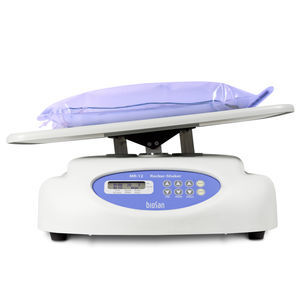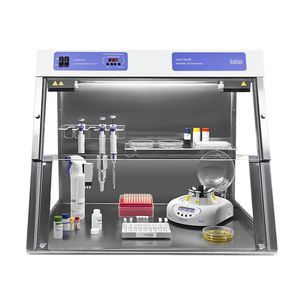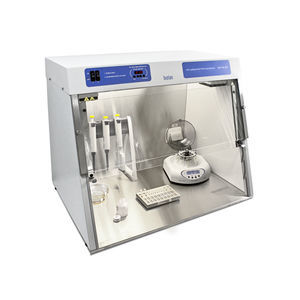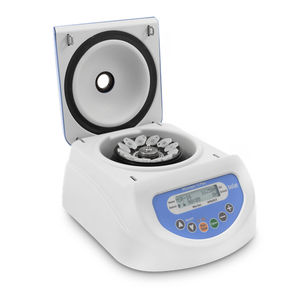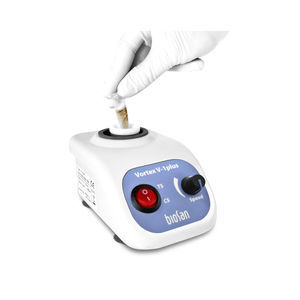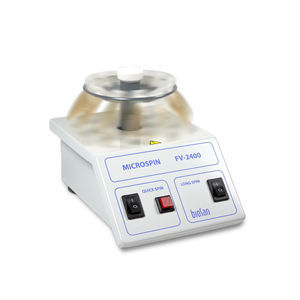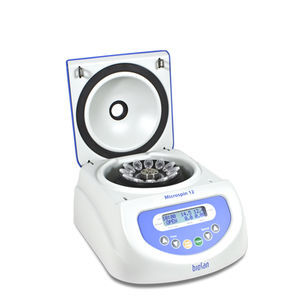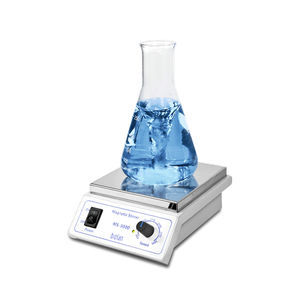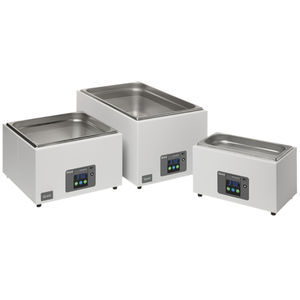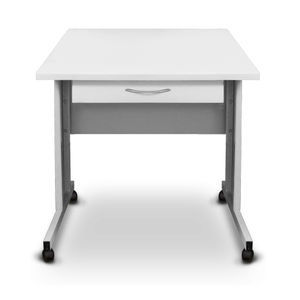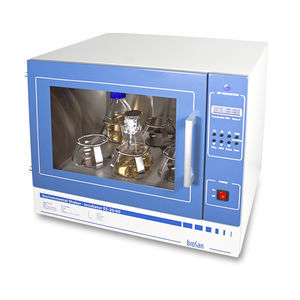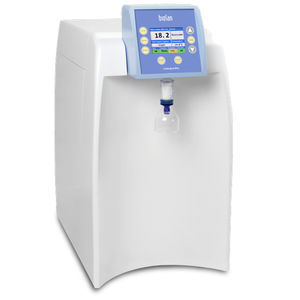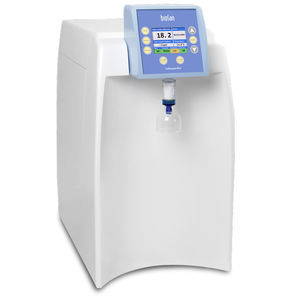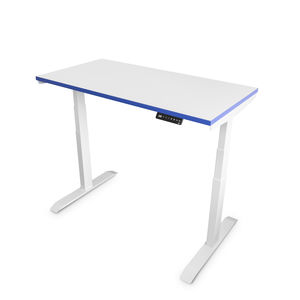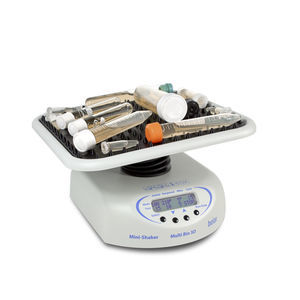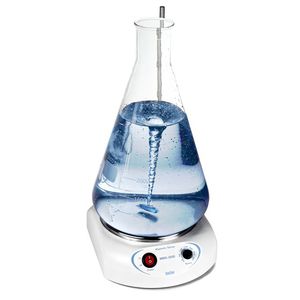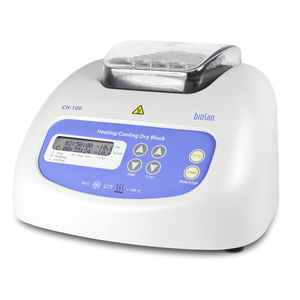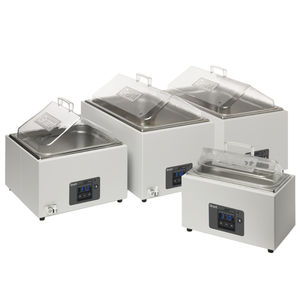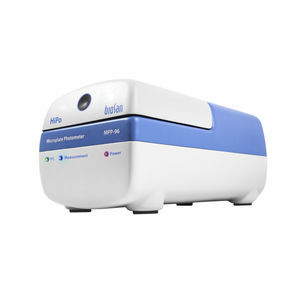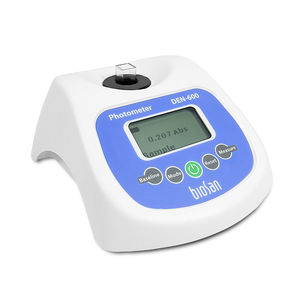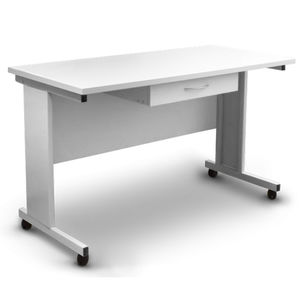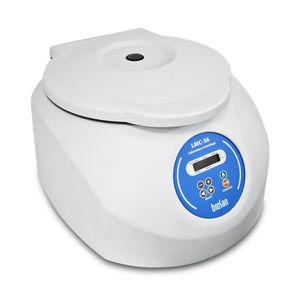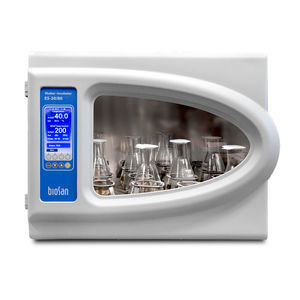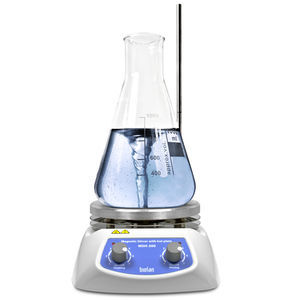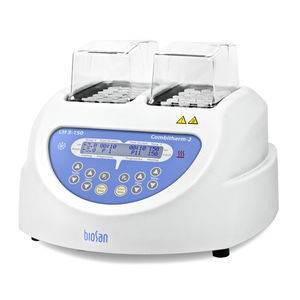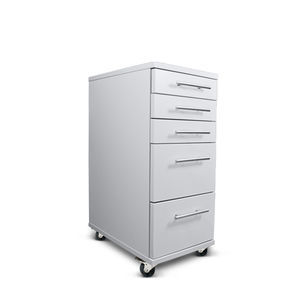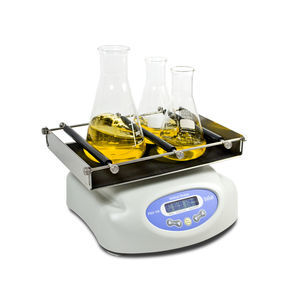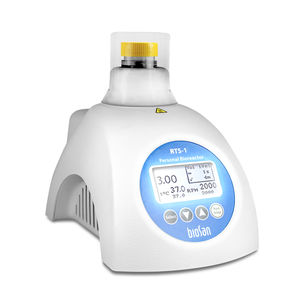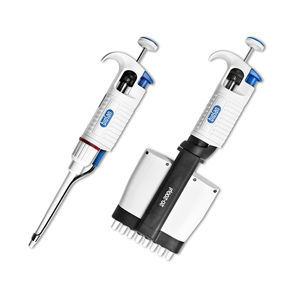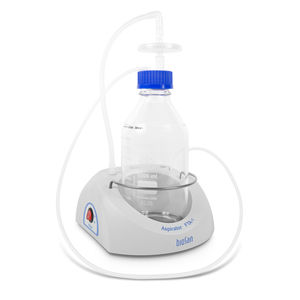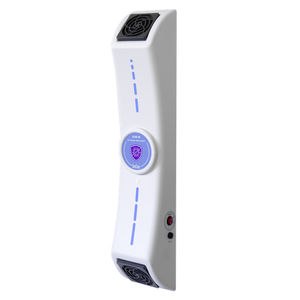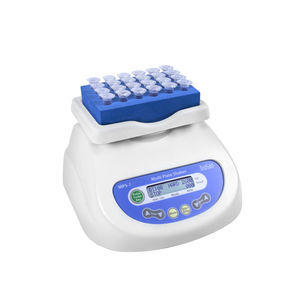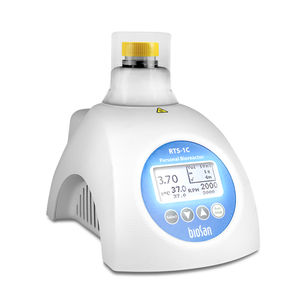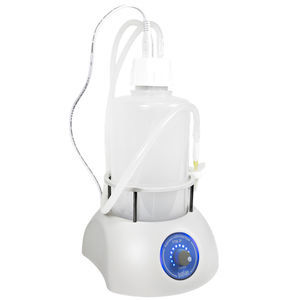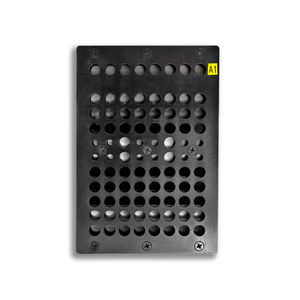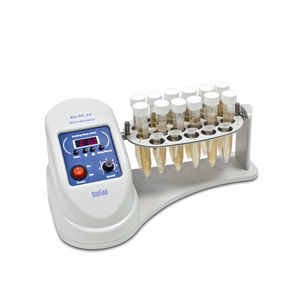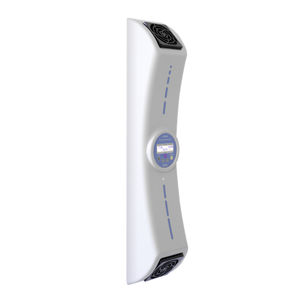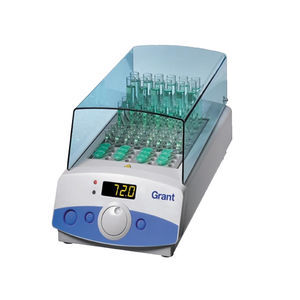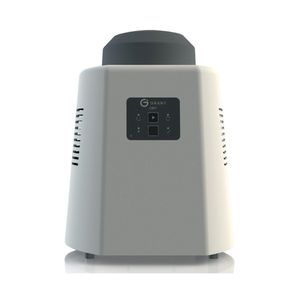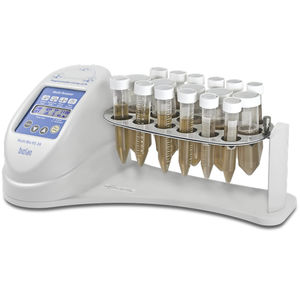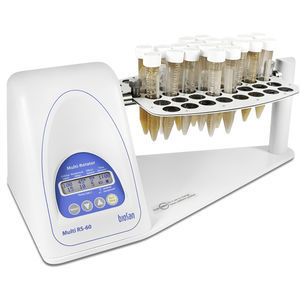
Test tube dry block thermostat TDB-120digital

Add to favorites
Compare this product
Characteristics
- Applications
- for test tubes
- Options and accessories
- digital
Description
TDB-120 is a traditional Biosan’s dry block thermostat for laboratory analysis. Thermostat is designed for maintaining constant temperature of samples in tubes inserted in the aluminium block sockets. Unprecedented high precision and uniformity of temperature over the block. TDB-120 is widely used for PCR–analysis.
Microprocessor controlled temperature and time. Simultaneous indication of set and actual temperature and time.
Blocks (built in) specifications:
Two models are available offering a choice of tube configurations to meet the needs of many standard laboratory procedures:
Block A-103
21 × 0.5 ml + 32 × 1.5 ml + 52 × 0.2 ml microtubes
Block A-53
21 × 0.5 ml + 32 × 1.5 ml microtubes
Temperature setting range : +25°C ... +120°C
Temperature control range : 5°C above ambient ... +120°C
Temperature setting resolution : 0.1°C
Temperature stability at +37°C : ±0.1°C
Temperature uniformity at +37°C : ±0.1°C
Temperature calibration coefficient range : 0.968...1.031 (± 0.031)
Digital time setting : 1 min–96 hrs / non–stop (increment 1 min)
Timer sound signal : +
Display : LCD, 2х16 signs
Overall dimensions (W×D×H) : 230 × 210 × 110 mm
Weight : 2.8 kg
Power consumption (230 V) : 200 W (870 mA)
Nominal operating voltage : 230 V, 50/60 Hz or 120 V, 50/60 Hz
VIDEO
Catalogs
No catalogs are available for this product.
See all of Biosan‘s catalogsRelated Searches
- Laboratory shaker
- Incubator
- Laboratory incubator
- Digital laboratory shaker
- Laboratory freezer
- Vertical centrifuge
- Laboratory centrifuge
- Benchtop laboratory shaker
- Magnetic laboratory shaker
- Upright freezer
- Natural convection incubator
- Tabletop centrifuge
- Laboratory water bath
- Pipette
- Purification system
- Flask laboratory shaker
- Compact laboratory shaker
- CO2 incubator
- Laboratory laboratory shaker
- Stainless steel laboratory shaker
*Prices are pre-tax. They exclude delivery charges and customs duties and do not include additional charges for installation or activation options. Prices are indicative only and may vary by country, with changes to the cost of raw materials and exchange rates.


